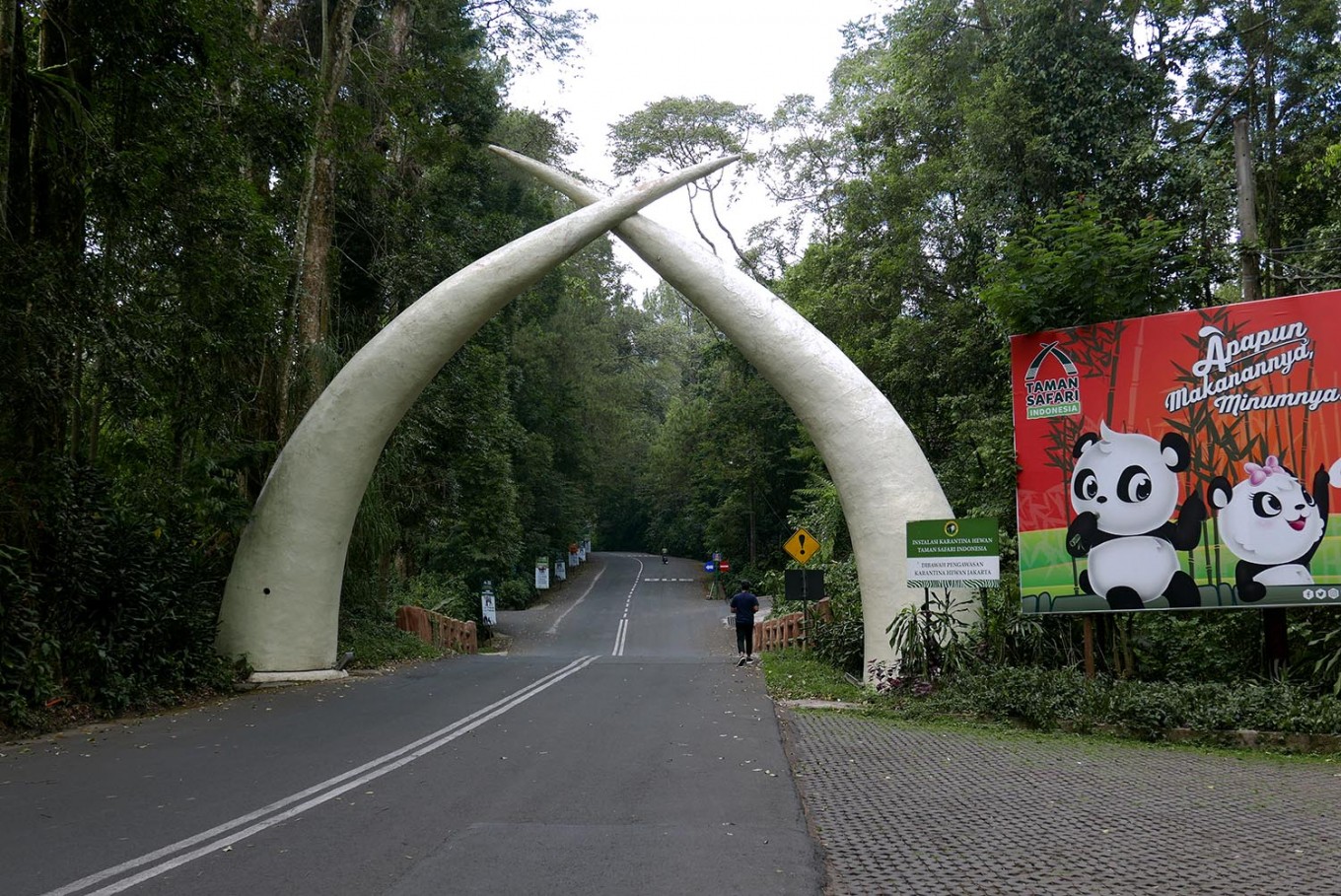Popular Reads
Top Results
Can't find what you're looking for?
View all search resultsPopular Reads
Top Results
Can't find what you're looking for?
View all search resultsIndonesian zoos to implement 'new normal' protocols
As some zoos in the country begin to reopen, new measures to maintain safety are applied.
Change text size
Gift Premium Articles
to Anyone
J
une marks the start of the large-scale social restriction (PSBB) transition period in some areas, which means that the government will be slowly opening up the economy as we enter the “new normal”. This includes reopening zoos.
Taman Safari Indonesia (TSI) in Bogor, West Java, has been preparing to implement new regulations and dive right back into business.
The park reopened on June 15 with regulation changes that include physical distancing measures, such as closing down four out of seven educational shows, focusing on outdoor activities, using private cars for socially distanced tours, putting a temporary stop to bus rides and keeping the capacity to a maximum of 50 people.
In an interview with The Jakarta Post, TSI’s spokesperson said the site had provided more handwashing facilities and urged visitors to wear a mask. The site has also been checked by government authorities to ensure that it is safe to visit.
The park has also created an educational video for visitors regarding the new safety measures as well as preparing hand sanitizer and masks.
Some zoos are still holding off on reopening to the public, such as Bali Safari and Marine Park. Marketing communication officer Lia said, “Although the site is still officially closed to visitors, employees are still working as usual to keep the park clean and manageable.”
Read also: Taman Safari Indonesia names newborn Sumatran elephant Covid
In the capital city, Ragunan Zoo in Pasar Minggu will reopen to the public on June 20. It announced on Twitter that it would only allow Jakarta residents to visit and they were required to register on this site prior to visiting.
Untuk kalian yang sudah rindu ragunan dan akan berkunjung minggu ini tepat nya tanggal 20 Juni 2020, jangan lupa ya daftarkan dulu diri anda di https://t.co/jHuROFos20.
Pastikan KTP berdomisili DKI Jakarta
Ikuti Protokol Kesehatan selama anda berada di Taman Margasatwa Ragunan. pic.twitter.com/BqCr4HL3eU
— Ragunan Zoo (@ragunanzoo) June 15, 2020
Visitors will be required to undergo a temperature check, wear a face mask and apply physical distancing measures.
The closure of zoos across the country since late March led to management teams scrambling to produce the funds needed to afford animal food, with thousands of animals at risk of starvation. The Indonesian Zoo Association (PKBSI) also estimated that at least 22,000 zoo workers across the archipelago might lose their livelihoods because of the pandemic.
To cushion the impact of the pandemic, the association began an internal fundraising initiative among members in early May. The PKBSI also sent a letter to President Joko “Jokowi” Widodo asking for government assistance.
Additionally, the PKBSI ran an online fundraising campaign called Food for Animals, seeking funds to improve the living conditions of animals in zoos, especially those endemic to the country, such as the Sumatran tiger, Bornean orangutan and Sumatran elephant.
On May 19, homegrown agricultural technology firm TaniHub Group donated animal feed to Taman Safari Indonesia. TaniSupply director Sariyo said members of the public would be able to contribute to the donation campaign through the TaniHub mobile app. (wng)
_________
The writer is an intern at The Jakarta Post.







